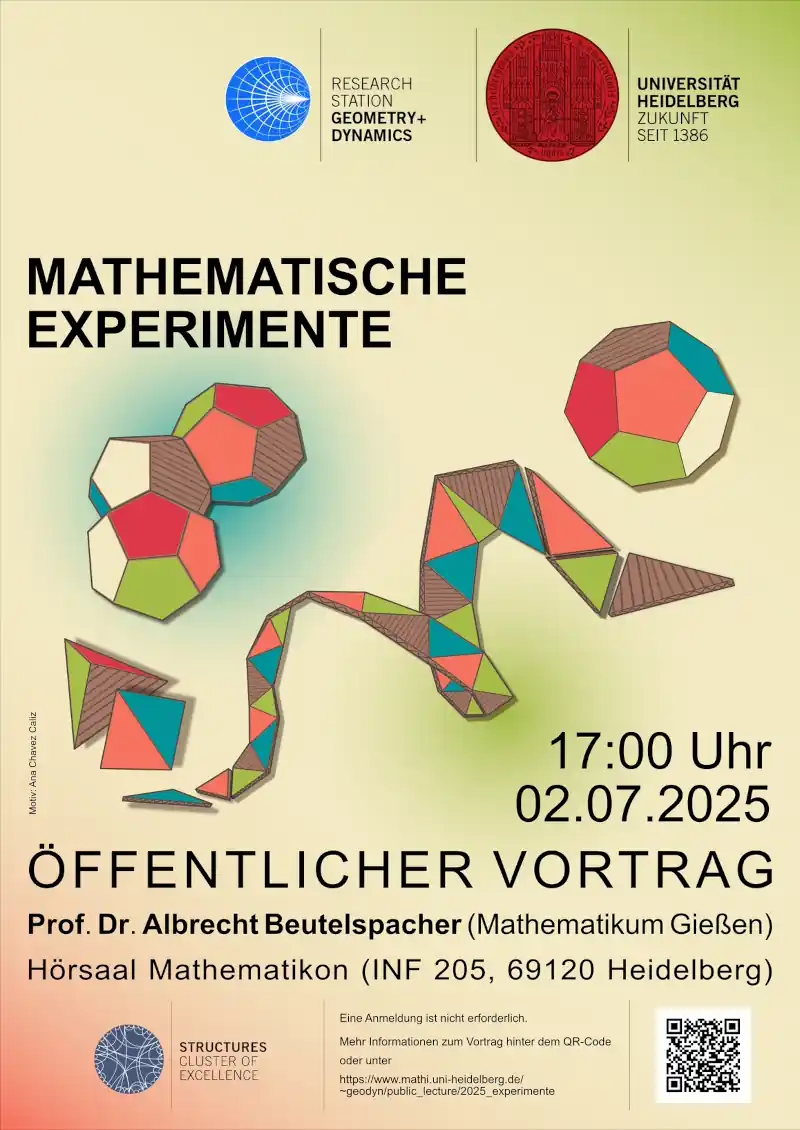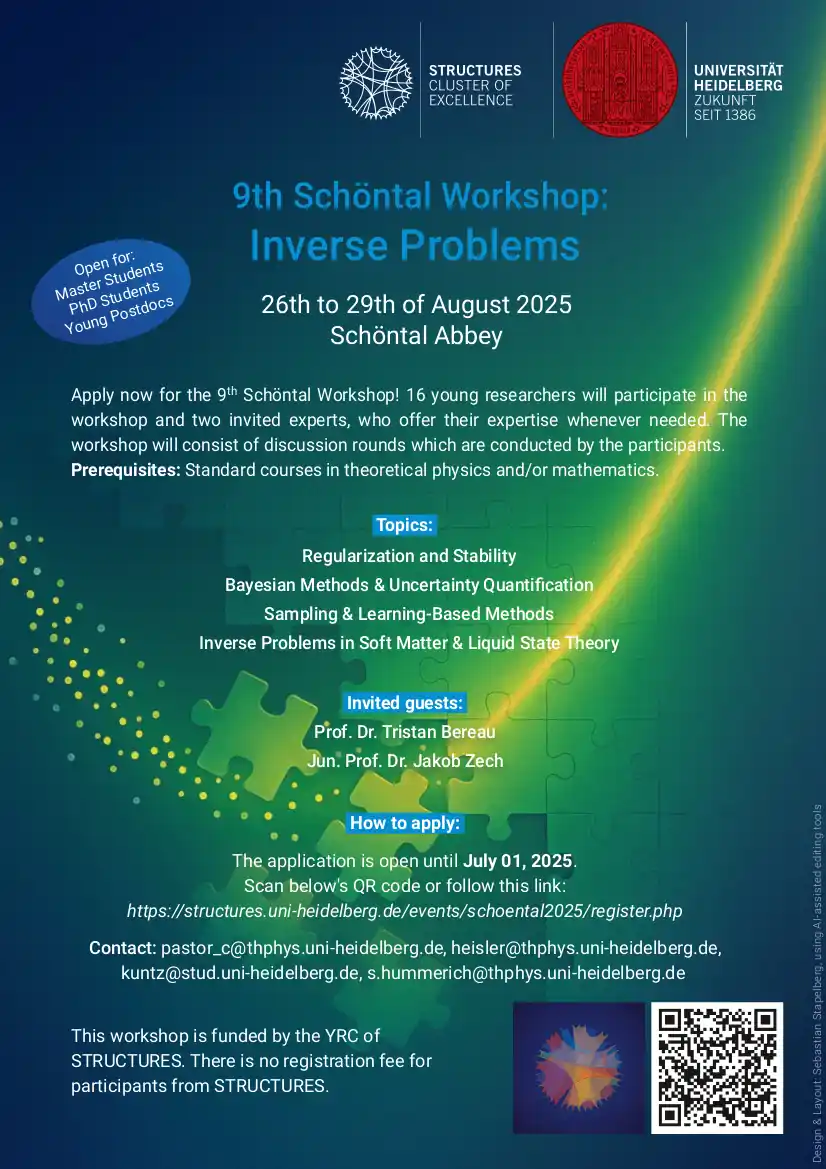Newsroom
Stay informed with our latest news and announcements on this page. For more in-depth content, we also encourage visitors to explore our bimonthly STRUCTURES Newsletter magazine, which features a variety of articles, interviews with members, and background information on our latest research and activities.
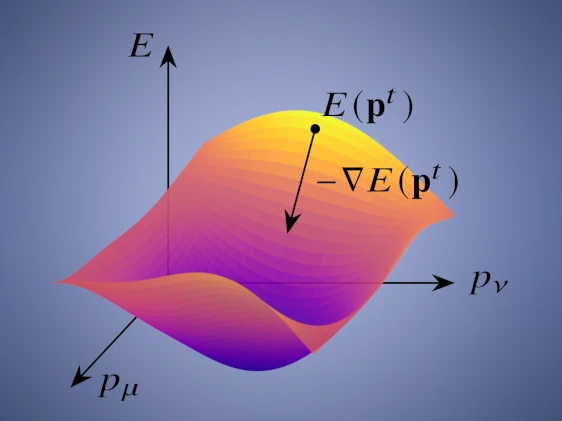
Researchers at Heidelberg University have made a significant advance in computational quantum chemistry with the development of STRUCTURES25, a new orbital-free density functional theory (OF-DFT) method powered by machine learning.
In the 1960s, physicists Hohenberg and Kohn made a landmark discovery: the ground-state energy of a molecule or material is completely determined by its electron density — a function describing where electrons are most likely to be found. In principle, this meant that the complex, many-body equations of quantum mechanics could be replaced with a simpler task: finding the energy density functional in terms of this density and minimizing it.
For decades, however, sufficiently good approximations for the universal kinetic energy density functional have remained unknown, requiring the use of Kohn–Sham density functional theory (KS-DFT) instead – where auxiliary wave functions or “orbitals” were reintroduced. While highly successful in practice, the computational cost of KS-DFT can be prohibitive for larger systems, prompting renewed interest in orbital-free density functional theory.
Within our cluster, the Hamprecht and Dreuw Groups, combining their expertise in machine learning and quantum chemistry, have been developing a new method to learn it directly. Their current model, STRUCTURES25, achieves chemical accuracy in energy predictions and successfully converges to physically meaningful electron densities for small organic molecules, a long-sought goal that could revolutionize the efficiency of calculations for huge molecular systems. Augmenting the training data with densities obtained from perturbed potentials proved key to these results.
With these advances, the team has brought Hohenberg's and Kohn’s original vision a big step closer to reality — and opened the door to fast, accurate quantum-level modelling of systems far beyond the reach of today’s most widely used methods.
Original Publication:
R. Remme, T. Kaczun, T. Ebert, C. A. Gehrig, D. Geng, G. Gerhartz, M. K. Ickler, M. V. Klockow, P. Lippmann, J. S. Schmidt, S. Wagner, A. Dreuw, and F. A. Hamprecht, Journal of the American Chemical Society, DOI: 10.1021/jacs.5c06219.
Further information:
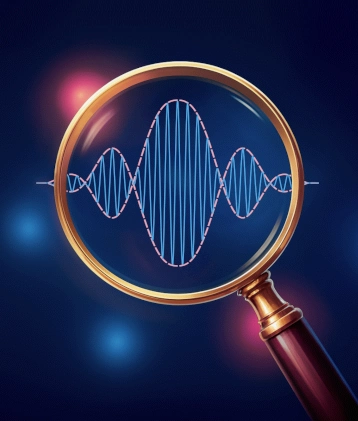
Understanding complex quantum systems remains a central challenge in modern physics. These systems can display correlations, pairing, and exotic states of matter that are key to both fundamental science and future quantum technologies. Yet, many of these processes occur on spatial scales too small to be resolved even with advanced imaging techniques. In particular, while current single-atom imaging techniques are powerful, they fail once the relevant structures fall below the resolution limit of the detection method, leaving essential microscopic correlations hidden.
To overcome this fundamental limitation, Sandra Brandstetter and her colleagues from the group of STRUCTURES member Selim Jochim have developed a novel "matter-wave microscope". Before imaging the atoms, their approach first magnifies their wave function by a factor of about 50. This is achieved by precisely controlling the atoms' time evolution within specially designed optical potentials, essentially performing two “rotations” of the wave function in phase space, without disturbing the correlations that are of interest for their study.
This new technique unlocks the ability to access arbitrary higher-order correlations. Its applications extend to in-depth studies of fermionic pairing and other exotic systems; and help reveal the building blocks of future quantum technologies.
Further information:
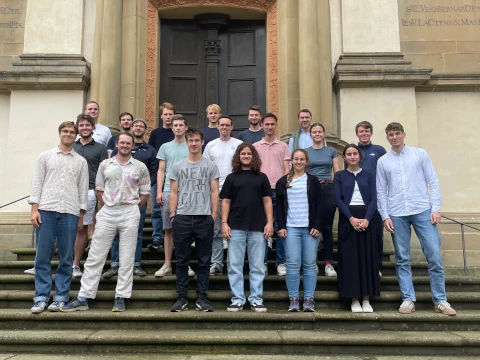
For four days in August, sixteen students and two professors gathered at the beautiful Schöntal Abbey to study and discuss about the topic of Inverse Problems. Participants were organized in four groups, each of which carefully prepared subtopics, and presented them during the workshop, leading to in-depth discussions. The Schöntal workshop was thus a lively and enriching experience!
The annual workshop, funded by STRUCTURES' Young Researchers Convent (YRC), brings together early-career researchers from different areas of STRUCTURES to engage in discussion over topics that go beyond the standard curriculum of a lecture. This year's workshop, marking its ninth edition, was organized by Rebecca Maria Kuntz, Carlos Pastor Marcos, Hannes Heisler, and Sander Hummerich.
Further information:
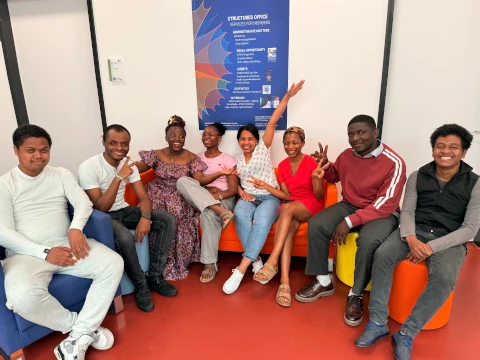
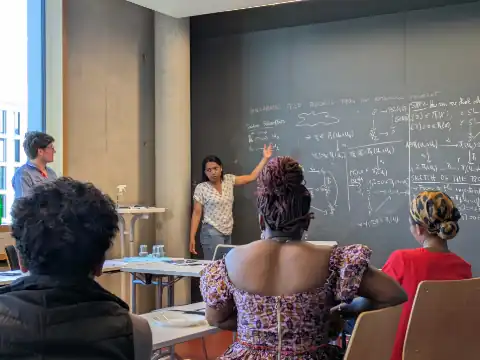

On June 31 and July 01, the STRUCTURES Cluster of Excellence had the pleasure of welcoming YAM fellows and organizers from various German clusters of excellence to this year's YAM network meeting in Heidelberg. During the meeting, which took place at the STRUCTURES “Oberstübchen”, the YAM fellows presented and discussed their research, shared experiences from their stays in Germany, and engaged in dialogue with peers and coordinators. In addition, the second day featured two talks on career opportunities for mathematicians in Germany by invited guests Dr. Helke Hillebrand (Graduate Academy Heidelberg) and Dr. Patrick Wagner (heiSKILLS Competence and Language Centre). The programme was complemented by a campus tour, a guided walk through Heidelberg's Old Town, a group dinner and several informal opportunities for networking and exchange.
The two-day meeting fostered lively discussion, providing valuable insights and new connections for both fellows and coordinators of YAM. During the final feedback session, participants shared their impressions and feedback directly with the YAM coordination team, contributing to the continuous development of the programme.
The YAM (Young African Mathematicians) Programme is a collaborative initiative between the five centres of the African Institute for Mathematical Science (AIMS – Cameroon, Senegal, Rwanda, Ghana and South Africa) and four German clusters of excellence (HCM Bonn, Mathematics Münster, MATH+ Berlin, STRUCTURES Heidelberg) that cover mathematical research. Its mission is to encourage young, talented and highly motivated graduates of the AIMS master's programme to conduct a research stay at an excellent mathematical institution in Germany. Supervised by a professor (and supported by mentors), the fellows pursue independent research and participate in a structured curriculum of courses and lectures.
More than a visiting fellowship, YAM seeks to build a strong and lasting network among young African researchers and the German mathematics community. Regular network meetings, such as the one held in Heidelberg, play a key role in fostering exchange and collaboration across institutions and continents.
STRUCTURES is proud to have been an official partner of the YAM Programme since 2023. Through its contribution to the YAM Programme, STRUCTURES aims to promote international cooperation, diversity and equal opportunities. In the first year of its contribution, STRUCTURES has hosted the YAM fellows Richarlotte Razafindravola and Olivette Tchouangnou Chuagua. In the 2024/25 period, we were happy to welcome Mina Chavelle Tchoua Tchoua, Mickaya Aimé Razanaparany, and Eunisse Nzetchuen Mangaptche. The local YAM coordination team in Heidelberg consists of Prof. Hans Knüpfer, Dr. May-Britt Becker and the STRUCTURES Office team.
Further information:


An international team of researchers involving STRUCTURES member Thomas Pfeifer has achieved a long-sought milestone in X-ray science.
When intense laser light passes through a gas, it can undergo Raman scattering, a process where photons exchange energy with molecular vibrations and emerge at new frequencies. At high intensities this weak effect becomes self-amplifying, a regime known as stimulated Raman scattering (SRS), first observed in the 1960s. By analyzing the scattered light, researchers can extract detailed information about the molecular structure of the gas. For decades, theorists predicted that a similar effect should occur with X-rays, where the interaction would probe the motion of electrons in atoms rather than molecular vibrations. The effect, known as stimulated X-ray Raman scattering, was demonstrated in earlier studies, but without the resolution needed to spectroscopically resolve electronic excitations.
In a new study published in Nature, researchers from the Argonne National Laboratory (USA) along with the Max Planck Institute for Nuclear Physics (MPIK) in Heidelberg and the European X-ray Free Electron Laser (European XFEL) in Hamburg, have overcome this barrier. In an experiment carried out at the European XFEL, they directed intense X-ray pulses through a compact, high-pressure neon gas cell designed at MPIK. As the pulses propagated, they drove the characteristic stimulated Raman amplification, producing distinct X-ray “fingerprints” of the neon atoms' excited states.
The breakthrough came from analyzing the scattered X-rays with a stochastic approach that turns the inherent noise of XFEL pulses into an advantage. Each pulse has a noisy, spiky spectrum; correlating the spectral spikes of incident and scattered X-rays for over 18,000 individual shots, the team could effectively bypass the limits of the spectrometer itself. This “super-resolution” approach – reminiscent of the optical super-resolution techniques recognized by the 2014 Nobel Prize in Chemistry – proved crucial. It enabled the recovery of narrow Raman features that would normally be blurred by both the finite bandwidth of the source and the resolution of the spectrometer. Thomas Pfeifer, STRUCTURES member at MPIK and co-author of the study, emphasizes: “The experience of our Heidelberg team on high-pressure gas-phase targets for quantum-physics research as well as the data-analysis idea of the super-resolution approach were key contributions to the success of this experiment.”
The findings not only confirm SXRS as a powerful tool for probing matter but also demonstrate dramatic improvements in signal strength and efficiency compared to traditional Raman techniques. Supported by detailed simulations, they also reveal the competition between Raman scattering in neutral atoms and lasing in ionized ones during X-ray propagation. Together, these advances open the door to a new era of X-ray science, where researchers can track the ultrafast movements of electrons that govern the outcome of chemical reactions. This paves the way for deeper insights into materials, catalysis, and biological processes.
Further information:
We are happy to announce the public lecture “Mathematische Experimente” by Prof. Albrecht Beutelspacher (Mathematikum Gießen), taking place on Wednesday July 2, 2025 at 5pm in the Hörsaal of the Mathematikon (INF 205), Heidelberg. In his talk, which will be in German, Prof. Beutelspacher will explore how simple materials can be used to create objects and experiments. The event is organized by the Research Station Geometry + Dynamics, with support by the STRUCTURES Cluster of Excellence.
Abstract:
Ausgehend von der Formel des Pädagogen Pestalozzi, die das Lernen "mit Kopf, Herz und Hand" thematisiert, werden aus einfachsten Materialien Objekte und Experimente hergestellt ("Hand"). Wenn man diese Objekte sorgfältig gestaltet, treten automatisch Fragen des Zusammenpassens und der Übereinstimmung von Kanten, Flächen und Winkeln auf ("Kopf"). Und da jedes dieser Objekt ein Erfolgserlebnis verspricht, entstehen auch positive Gefühle ("Herz"). In dem Vortrag werden Experimente zu Körpern (etwa zum Tetraeder und Dodekaeder) und zu Zahlen vorgeführt und auf den mathematischen Hintergrund und das didaktische Potential eingegangen. Ein Vortrag, der für alle Altersgruppen geeignet ist und sowohl Erkenntnis als auch Unterhaltung bietet.
The talk is free of charge, a registration is not necessary.
Further information:
We are delighted to announce this year's iteration of the Schöntal Discussion Workshop on “Inverse Problems,” taking place from 26th to 29th of August 2025 – once again in the tranquil and idyllic location of Schöntal Abbey. The Schöntal workshop aims to bring together early-career researchers from different scientific areas of STRUCTURES to engage in discussion over topics that go beyond the standard physics and mathematics curriculum. It especially aims at fostering vivid interdisciplinary scientific exchanges.
This year's overarching topic is “Inverse Problems,” allowing in particular interdisciplinary discussions between physicists, mathematicians and computer scientists without requiring specialized knowledge in advance. The sub-topics of the Workshop are:
- Regularization and Stability
- Bayesian Methods & Uncertainty Quantification
- Sampling & Learning-Based Methods
- Inverse Problems in Soft Matter & Liquid State Theory
The application is open until July 01, 2025. Registration is free of charge for participants from STRUCTURES. Please register via this link:
https://structures.uni-heidelberg.de/events/schoental2025/register.php
This workshop is funded by STRUCTURES' Young Researchers Convent (YRC), a subgroup of the STRUCTURES Cluster of Excellence that brings together early-career researchers of our scientific community and supports them in realizing their own projects. Any early-career researcher who is working in a field that fits into the concept of STRUCTURES can apply for a YRC membership. If your supervisor is a STRUCTURES member, you are directly eligible.
Further information:
